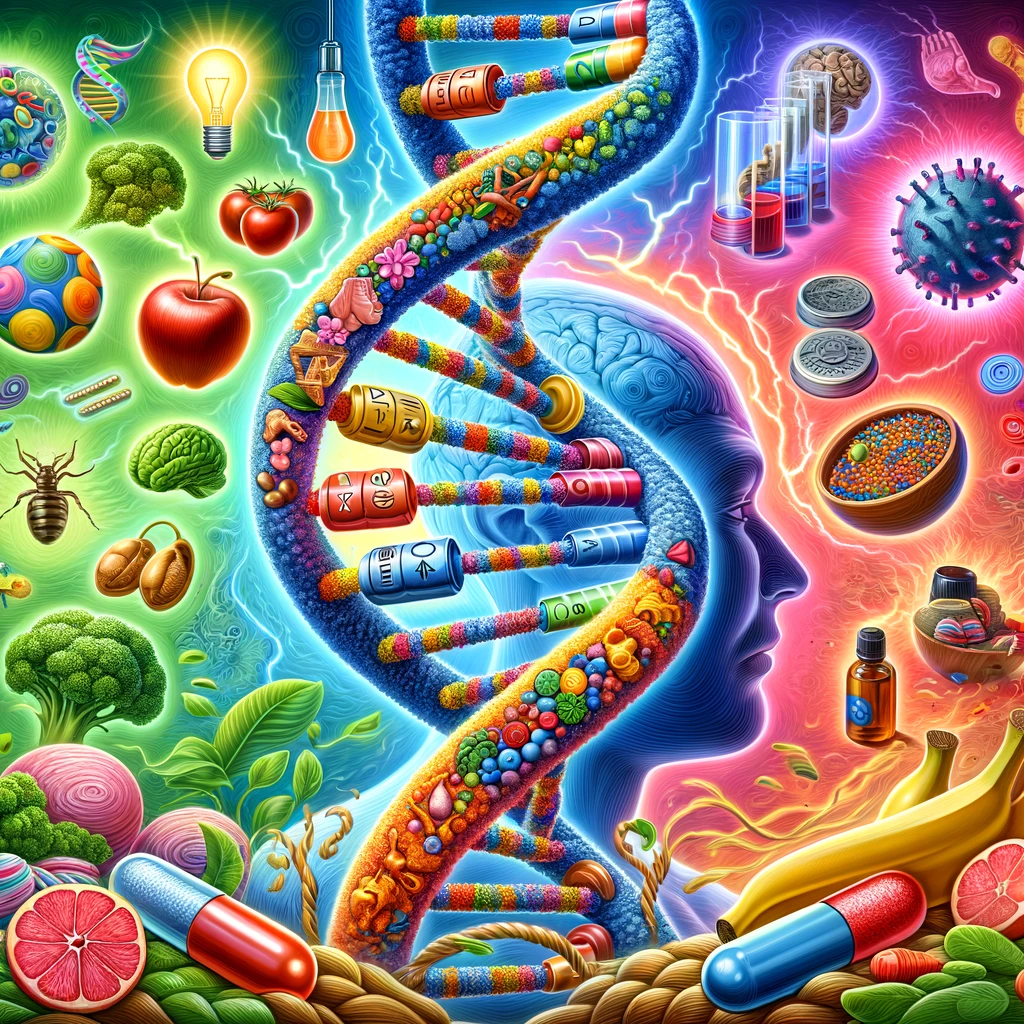Epigenetics is a field of biology that studies changes in gene expression that do not involve alterations to the underlying DNA sequence—a change in phenotype without a change in genotype. These changes can affect how cells read genes and can have a profound impact on the organism. Key points about epigenetics include:
1. Mechanisms: Epigenetic changes are primarily brought about through processes such as DNA methylation, histone modification, and RNA-associated silencing. These mechanisms can either activate or silence the expression of genes.
2. Influence of Environment: Unlike genetic changes, epigenetic modifications can be influenced by environmental factors such as diet, stress, and exposure to toxins. For example, a stressful environment can trigger epigenetic changes that impact mental health.
3. Reversibility: One of the unique aspects of epigenetic changes is that they are potentially reversible, unlike changes in the DNA sequence. This aspect is of great interest for therapeutic interventions.
4. Development and Aging: Epigenetics plays a crucial role in development and aging. As organisms grow and age, epigenetic changes can significantly influence their development and overall health.
5. Disease Association: Abnormal epigenetic patterns are associated with many diseases, including cancer, autoimmune diseases, and neurological disorders. Understanding these patterns can aid in the development of new treatment strategies.
6. Heritability: Some epigenetic changes can be passed down from one generation to the next, affecting the traits and health of offspring.
7. Interaction with Genetics: Epigenetics interacts intricately with genetics. While it doesn’t change the DNA sequence, it affects how genes are expressed, which can have as significant an impact as genetic mutations.
In summary, epigenetics is a rapidly evolving field that explores how gene expression is regulated by mechanisms other than changes to the DNA sequence itself, offering insights into how our environment and lifestyle can impact our genetics and health.
Understanding epigenetics
Understanding epigenetics is increasingly important in modern society for several key reasons:
1. Health and Medicine: Epigenetics plays a crucial role in understanding the mechanisms behind various diseases, including cancer, mental health disorders, and heart diseases. By understanding epigenetic changes, we can improve diagnosis, develop more targeted treatments, and potentially prevent certain diseases.
2. Personalized Medicine: Epigenetics enables the development of personalized medicine. Since epigenetic modifications can vary greatly between individuals, understanding these differences can lead to more customized and effective treatment plans.
3. Lifestyle and Environment: Epigenetics bridges the gap between our genes and our environment. It highlights how lifestyle choices and environmental factors like diet, stress, and exposure to toxins can influence our genetic expression. This understanding empowers individuals to make informed choices about their lifestyle and environment.
4. Intergenerational Effects: Studies have shown that epigenetic changes can be heritable. Understanding these changes can provide insights into the transmission of traits and diseases across generations, leading to better family health planning and interventions.
5. Ethical, Legal, and Social Implications: As we unravel more about epigenetics, it raises important ethical, legal, and social questions. For example, the use of epigenetic information in the workplace or insurance could lead to discrimination. A deep understanding of epigenetics is essential to address these concerns responsibly.
6. Public Health Policy: Knowledge of epigenetics can inform public health policies. For instance, understanding the impact of environmental factors on genetic expression can lead to policies aimed at reducing exposure to harmful substances or improving lifestyle choices at the community level.
In conclusion, understanding epigenetics is vital in modern society as it enhances our comprehension of health and disease, informs personal and public health decisions, and raises important ethical and social questions. As research advances, its relevance and impact on various aspects of society are likely to grow.










